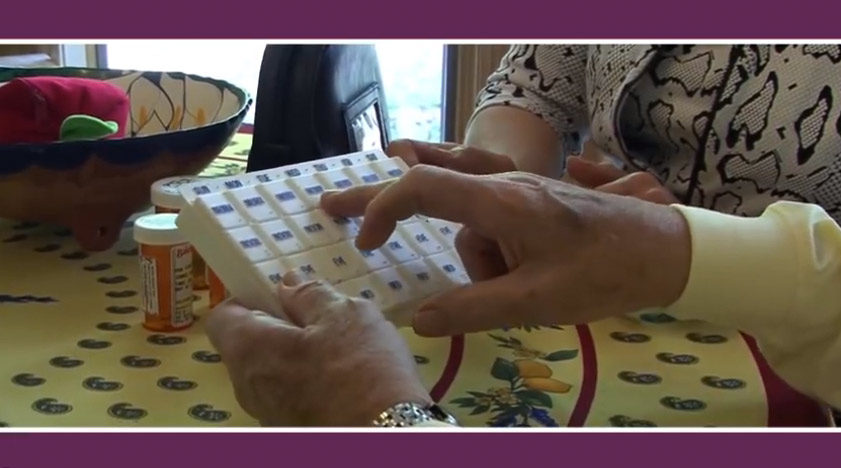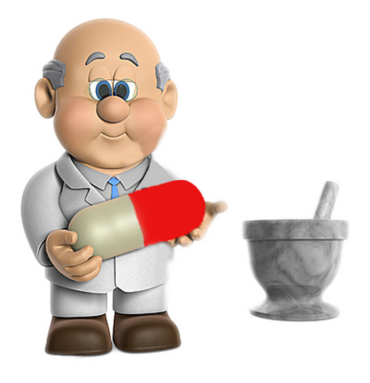Hi, I am Mary Alexander from Home Instead Senior Care.
Today I am talking about how to help your parents manage their medications.
Now I am going to offer some useful ways you can help them get organized and avoid drug interactions.
Ways to manage seniors medication
So what are some ways you can help your parents manage their medications.
1. The first step is to create a list of all of the medications they are taking. Each parent should have his or her own list. At the top, put their full name and date of birth. Below that, list each drug name and its dosage.

2. We also recommend including any directions, those can be things such as how many times a day, and when the medication should be taken.
What liquids or foods should be used to take with the medication? Be sure to also include any foods or beverages that should be avoided, such as dairy or alcohol.
3. This part of the list should also include refill frequency. This list of drugs should include prescriptions as well as any over-the-counter medications and supplements, such as calcium, vitamins and herbs.
Next on the list should be all allergies, including those related to medicines and foods.
The last item on the list should be pharmacy, and healthcare provider names, addresses, phone numbers, and family emergency contact information.
This list should be readily available for emergency responders. So it’s wise to leave a copy on your parents’ refrigerator.
Believe it or not, they are trained to look there for just such information.
4 Your parents should take it with them to any medical appointment or when filling a new prescription. One or two family members should also have copies, and be responsible for updates as necessary.
We know, one of the medication management challenges for seniors is getting timely refills.

5 If you notice on the list that your parent has prescriptions at multiple pharmacies, work with them to consolidate them into one location.
Not only will that make it easier on your senior loved one, but the pharmacist will have the full list if drugs being taken, and can better watch for potential harmful interactions.
6. If it’s difficult for your senior loved one to get to the pharmacy, or they have problems hearing, and can’t manage the telephone voice system, mail order prescriptions, especially for drugs taken everyday over a period of time might be a great solution.
7 There are usually cost savings associated with this method as well. You can also volunteer to manage the refills through your email system, so they don’t have to worry about it.
Even if your senior is using a mail order pharmacy, it’s wise to periodically consult a pharmacist. He or she can help you ensure that the medications your parent is taking aren’t interacting with each other.
8 You can also share a list of over-the-counter drugs and supplements, to make sure those won’t have any adverse effects when combined with a prescription.

When your parent gets a new prescription, be sure to save the information material that came along with it.
If you or your parents start noticing a new issue, such as a memory problem, you can check the reference material to see if a new medication might be causing the problem.
This may also be a good time to remind them not to cut or chew tablets, unless the direction specifically indicates that that is okay to do.
9 Perhaps, one of the most helpful tools you can offer your parent when managing medication is an effective organizing system.
One of the most common methods is to use a daily pill organizer. These handy plastic organizers can be found at most drug stores, and come in a variety of shapes and sizes.
The most common ones usually have seven compartments, one for each days worth of medication. Others though, have more compartments for each day, so that your senior loved one knows what pills to take in the morning, at lunch, and with dinner, or before bedtime.
10 If your senior loved one has a hard time even remembering to take their medications, there are electronic pill organizers that will sound an alarm, when it’s time to take the medications.
Other electronic pill reminders talk, relaying information verbally, which can also be very helpful.
No matter what kind of pill organizer your senior uses, you can help by sitting down with them once a week and filling up each compartment for them.
The list you made of all the medications and supplements can serve as a handy reference guide for accomplishing this task.
Whether your parent uses a pill an organizer or not, it’s important that they keep the balance of all of their medicines in the original container.
The label contains important information such as dosage, and expiration dates. Speaking of expiration dates, it’s a good idea for you to check the prescription labels on their pill bottles.
This is a way for you to help make sure they’re getting proper refills. You can check the expiration date and discard any old medications.
11 Having open conversations with your parents about their medicines and encouraging them to do the same with their healthcare providers and pharmacist is always advisable.
In the end, by speaking up and talking about proper dosage, refills and effects, means your senior loved one’s health and quality of life can improve.






